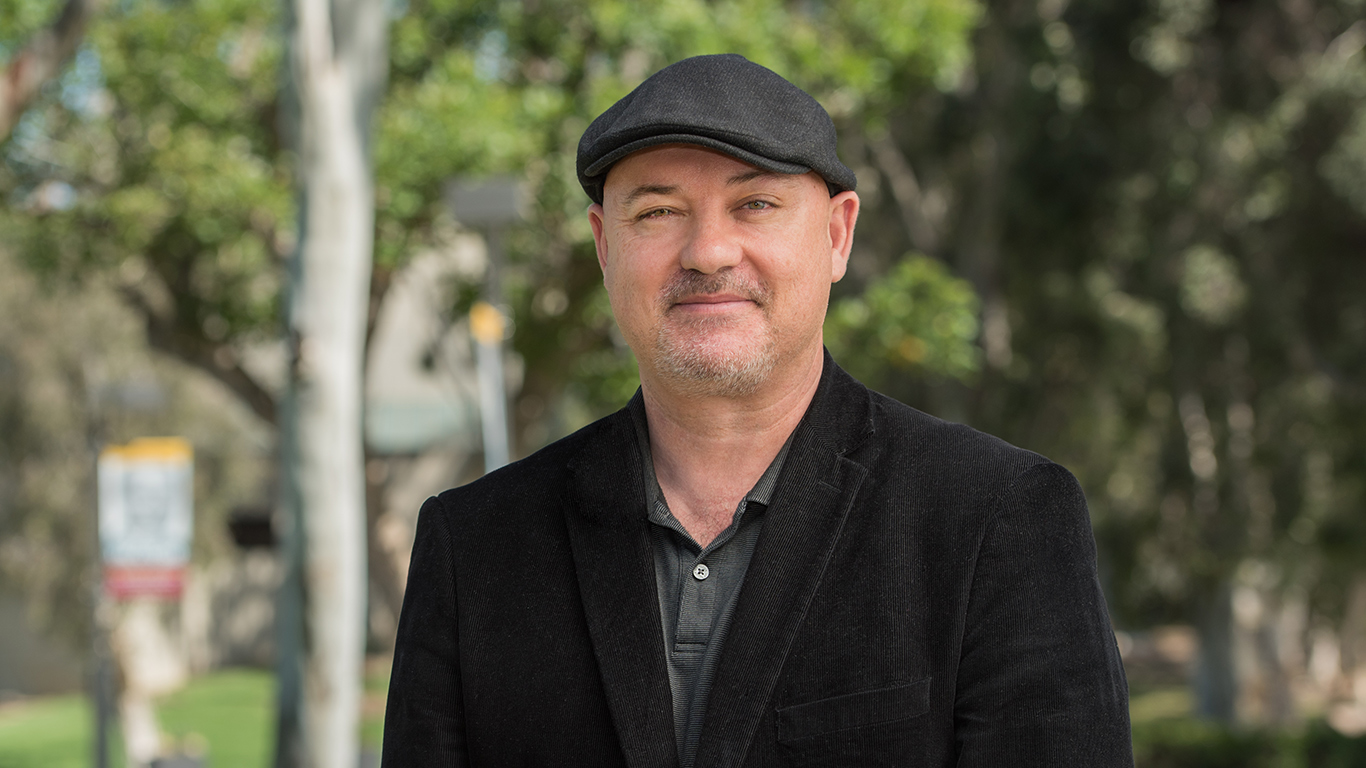
Professor Benito Gómez’s passion for researching and writing about Hispanic authors and literature is only matched by his enthusiasm for sharing it with his students in unique ways.
As a professor of modern languages at California State University, Dominguez Hills (CSUDH), Gómez prepares students who intend to study Spanish in graduate school, and/or teach Spanish in high school. His unique ways of creating intellectual stimulation and motivating his students have earned him CSUDH’s 2018 Excellence in Research, Scholarship and Creative Activity Award.
“I felt very honored when I was nominated because the nomination came from my students. I’m not a big fan of recognitions when they are about me, but my students insisted,” Gómez admitted. “Obviously, it’s great to be recognized by your peers, and I want to thank the Faculty Awards Committee for thinking that I deserved this award.”
Gómez’s research focuses on the literature of his native country, Spain. In particular he is interested in popular Spanish 18th, 19th and 20th century authors whose writing reflected their denial about Spain’s fall as an empire, a reign that lasted from the late 16th century to the early 19th century. He attends and presents at international conferences.
Knowing someone who has published and being able to talk to them about it is very positive for students. We are their role models, so why not be role models as writers. – Benito Gómez
Gómez is also an editor of two journals–in Buenos Aires, Argentina, and one in Jordan–and his research has been published in numerous journal articles. His upcoming book “The Literary Influence as Experienced from the New Periphery” will be published in summer 2018.
“I love to read, and writing is a product of reading, so I enjoy sharing with my students what I discover. I also really enjoy sharing my articles with my students because it’s another learning opportunity for them. They tell me they feel pride and that the articles are inspirational,” Gómez said. “Knowing someone who has published and being able to talk to them about it is very positive for students. We are their role models, so why not be role models as writers.”
Along with his in-class curricula, the most popular learning experience for Gómez’s students are international symposiums he coordinates that feature world-renowned authors, and/or highly- regarded professors from around the world.
He has organized nine international symposia at CSUDH to date and invites a variety of internationally-recognized writers to speak, such as Mexican author Elena Poniatowska and Argentinian novelist Luisa Valenzuela.
Gómez also believes the conferences provides international prestige for the university, and makes it mandatory for some students to present at each symposium, even if they are apprehensive about it.
“Most students want to attend or volunteer by helping organize them, but understandably tend to be reluctant about presenting in front of such an audience. But the results have been very impactful for them. Six of my students are now in Ph.D. programs and some are already professors at Biola University, San Jose State, and USC,” Gómez said. “The students also love to take part in the events because they can network. Many of them have established long-lasting friendships with those they have met there.”
During an upcoming sabbatical Gómez will be working on completing two additional books. The first one deals with the phenomenon of the recuperation of voice in female Hispanic authors. The second one is about the topic of writing as self-therapy for contemporary Hispanic writers. He has also started working on a book about “Don Quixote.”
“The great of Spanish and Latin American authors are still very influential all over the world. I have written about many different authors, but I find Miguel de Cervantes Saavedra the one I keep coming back to. His ‘Don Quixote’ is probably the most influential novel ever written,” he said. “I teach ‘Don Quixote’ once a year and every day I find something new and exciting about it.”